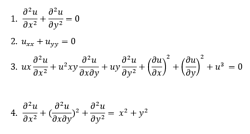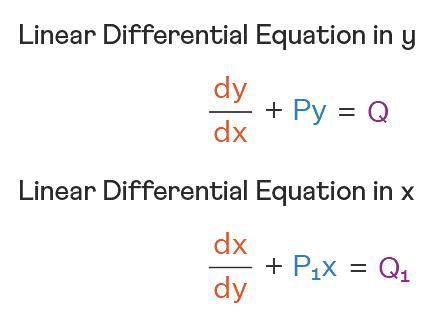Let m1, m2 be the slopes of two adjacent sides of a square of side a such that \(a^2 + 11a + 3(m_1^2 + m_2^2) = 220\). If one vertex of the square is \((10(\cos \alpha - \sin \alpha), 10(\sin \alpha + \cos \alpha))\), where \(\alpha \in \left(0, \frac{\pi}{2}\right)\)and the equation of one diagonal is \((\cos \alpha - \sin \alpha)x + (\sin \alpha + \cos \alpha)y = 10\), then \(72(\sin^4 \alpha + \cos^4 \alpha) + a^2 - 3a + 13\) is equal to :
- 119
- 128
- 145
- 155
The Correct Option is B
Approach Solution - 1
To solve the problem, we need to determine the expression \(72(\sin^4 \alpha + \cos^4 \alpha) + a^2 - 3a + 13\), given a set of conditions related to a square.
- From the problem, we have the equation: a^2 + 11a + 3(m_1^2 + m_2^2) = 220.
- We are given that (\cos \alpha - \sin \alpha) x + (\sin \alpha + \cos \alpha) y = 10 is the equation of the diagonal of the square. The slope of this line is: -\frac{(\cos \alpha - \sin \alpha)}{(\sin \alpha + \cos \alpha)}.
- The vertex of the square is (10(\cos \alpha - \sin \alpha), 10(\sin \alpha + \cos \alpha)). Simplifying using trigonometric identities:
- We use identities: \sin^2 \alpha + \cos^2 \alpha = 1, (\sin \alpha + \cos \alpha)^2 = \sin^2 \alpha + \cos^2 \alpha + 2\sin \alpha \cos \alpha to deduce: (\sin^2 \alpha + \cos^2 \alpha) + 2\sin \alpha \cos \alpha = 1 + 2\sin \alpha \cos \alpha = (\sin \alpha + \cos \alpha)^2.
- The condition a^2 + 11a + 3(m_1^2 + m_2^2) = 220 means the diagonals of the square intersect at the point given.
- Using the equation of the diagonal: (\cos \alpha - \sin \alpha) (10(\cos \alpha - \sin \alpha)) + (\sin \alpha + \cos \alpha) (10(\sin \alpha + \cos \alpha)) = 10, solving it yields: 10((\cos \alpha - \sin \alpha)^2 + (\sin \alpha + \cos \alpha)^2) = 10, further simplifies to: 10(1 + 2\sin \alpha \cos \alpha) = 10.
- From the relation: a^2 + 11a + 220 - a^2 - 11a = 0 \Rightarrow m_1^2 + m_2^2 = \frac{200 - a^2 - 11a}{3}.
- To find: 72(\sin^4 \alpha + \cos^4 \alpha) + a^2 - 3a + 13, use the identity: (\sin^2 \alpha + \cos^2 \alpha)^2 = \sin^4 \alpha + \cos^4 \alpha + 2\sin^2 \alpha \cos^2 \alpha = 1 to find: 72(\sin^4 \alpha + \cos^4 \alpha) = 18(1 - 2\sin^2 \alpha \cos^2 \alpha) = 72 - 36 \sum.
- Finally, simplify: 72(\sin^4 \alpha + \cos^4 \alpha) + a^2 - 3a + 13 = 128.
Therefore, the answer is 128.
Approach Solution -2
One vertex of square is
\((10(\cos \alpha - \sin \alpha), 10(\sin \alpha + \cos \alpha))\)
and one of the diagonal is
\((\cos \alpha - \sin \alpha)x + (\sin \alpha + \cos \alpha)y = 10\)
So the other diagonal can be obtained as
\((\cos \alpha + \sin \alpha)x - (\cos \alpha - \sin \alpha)y = 0\)
So, point of intersection of diagonal will be
\((5(\cos \alpha - \sin \alpha), 5(\cos \alpha + \sin \alpha))\)
Therefore, the vertex opposite to the given vertex is (0, 0).
So, the diagonal length
\(10\sqrt{2}\)
Side length \((a) = 10\)
It is given that
\(a^2 + 11a + 3(m_1^2 + m_2^2) = 220\)
\(m_1^2 + m_2^2 = 220 - 100 - 110 = 103\)
and \(m_1 \cdot m_2 = -1\)
Slopes of the sides are \(\tan \alpha \quad \text{and} \quad -\cot \alpha\)
\(\tan(2\alpha) = 3 \quad \text{or} \quad \tan(2\alpha) = \frac{1}{3}\)
\(72(\sin 4\alpha + \cos 4\alpha) + a^2 - 3a + 13\)
\(72 \cdot \tan^4 \alpha + \frac{1}{{(1 + \tan^2 \alpha)}^2} + a^2 - 3a + 13 = 128\)
So, the correct option is (B): \(128\)
Top Questions on Integration by Partial Fractions
If \[ \int (\sin x)^{-\frac{11}{2}} (\cos x)^{-\frac{5}{2}} \, dx \] is equal to \[ -\frac{p_1}{q_1}(\cot x)^{\frac{9}{2}} -\frac{p_2}{q_2}(\cot x)^{\frac{5}{2}} -\frac{p_3}{q_3}(\cot x)^{\frac{1}{2}} +\frac{p_4}{q_4}(\cot x)^{-\frac{3}{2}} + C, \] where \( p_i, q_i \) are positive integers with \( \gcd(p_i,q_i)=1 \) for \( i=1,2,3,4 \), then the value of \[ \frac{15\,p_1 p_2 p_3 p_4}{q_1 q_2 q_3 q_4} \] is ___________.
- JEE Main - 2026
- Mathematics
- Integration by Partial Fractions
- Let for \( f(x) = 7\tan^8 x + 7\tan^6 x - 3\tan^4 x - 3\tan^2 x \), \( I_1 = \int_0^{\frac{\pi}{4}} f(x)dx \) and \( I_2 = \int_0^{\frac{\pi}{4}} x f(x)dx \). Then \( 7I_1 + 12I_2 \) is equal to:
- JEE Main - 2025
- Mathematics
- Integration by Partial Fractions
- Let {an}n=0∞ be a sequence such that a0=a1=0 and an+2=3an+1−2an+1,∀ n≥0. Then a25a23−2a25a22−2a23a24+4a22a24 is equal to
- JEE Main - 2025
- Mathematics
- Integration by Partial Fractions
- Find the value of \( \frac{5}{6} + \frac{3}{4} \).
- MHT CET - 2025
- Mathematics
- Integration by Partial Fractions
- If ∫ (2x + 3)/((x - 1)(x^2 + 1)) dx = log_x {(x - 1)^(5/2)(x^2 + 1)^a} - (1/2) tan^(-1)x + C, then the value of a is:
- MHT CET - 2025
- Mathematics
- Integration by Partial Fractions
Questions Asked in JEE Main exam
Which one of the following graphs accurately represents the plot of partial pressure of CS₂ vs its mole fraction in a mixture of acetone and CS₂ at constant temperature?


- JEE Main - 2026
- Organic Chemistry
- Let \( ABC \) be an equilateral triangle with orthocenter at the origin and the side \( BC \) lying on the line \( x+2\sqrt{2}\,y=4 \). If the coordinates of the vertex \( A \) are \( (\alpha,\beta) \), then the greatest integer less than or equal to \( |\alpha+\sqrt{2}\beta| \) is:
- JEE Main - 2026
- Coordinate Geometry
- Three charges $+2q$, $+3q$ and $-4q$ are situated at $(0,-3a)$, $(2a,0)$ and $(-2a,0)$ respectively in the $x$-$y$ plane. The resultant dipole moment about origin is ___.
- JEE Main - 2026
- Electromagnetic waves
Let \( \alpha = \dfrac{-1 + i\sqrt{3}}{2} \) and \( \beta = \dfrac{-1 - i\sqrt{3}}{2} \), where \( i = \sqrt{-1} \). If
\[ (7 - 7\alpha + 9\beta)^{20} + (9 + 7\alpha - 7\beta)^{20} + (-7 + 9\alpha + 7\beta)^{20} + (14 + 7\alpha + 7\beta)^{20} = m^{10}, \] then the value of \( m \) is ___________.- JEE Main - 2026
- Complex Numbers and Quadratic Equations
- The work functions of two metals ($M_A$ and $M_B$) are in the 1 : 2 ratio. When these metals are exposed to photons of energy 6 eV, the kinetic energy of liberated electrons of $M_A$ : $M_B$ is in the ratio of 2.642 : 1. The work functions (in eV) of $M_A$ and $M_B$ are respectively.
- JEE Main - 2026
- Dual nature of matter
Concepts Used:
Types of Differential Equations
There are various types of Differential Equation, such as:
Ordinary Differential Equations:
Ordinary Differential Equations is an equation that indicates the relation of having one independent variable x, and one dependent variable y, along with some of its other derivatives.
\(F(\frac{dy}{dt},y,t) = 0\)
Partial Differential Equations:
A partial differential equation is a type, in which the equation carries many unknown variables with their partial derivatives.

Linear Differential Equations:
It is the linear polynomial equation in which derivatives of different variables exist. Linear Partial Differential Equation derivatives are partial and function is dependent on the variable.

Homogeneous Differential Equations:
When the degree of f(x,y) and g(x,y) is the same, it is known to be a homogeneous differential equation.
\(\frac{dy}{dx} = \frac{a_1x + b_1y + c_1}{a_2x + b_2y + c_2}\)
Read More: Differential Equations